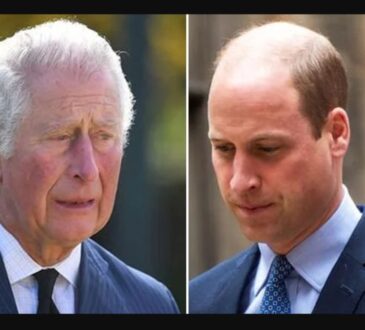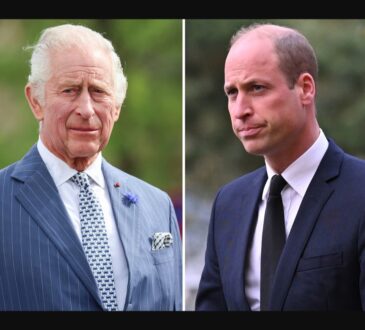
Amidst the ongoing speculation about the British monarchy’s future, there has been increasing debate about whether King Charles will renounce the throne in favor of his popular and well-prepared son, Prince William. While it’s a scenario that captures the public’s imagination, several factors make such an outcome highly unlikely.

According to reports by daily Express Saturday, October 7, 2023 Firstly, the notion of abdication is not a common practice within the British royal family. The last monarch to abdicate was King Edward VIII in 1936, and his decision to do so was a highly controversial and rare occurrence. Since then, the British monarchy has been guided by a sense of duty and continuity, with a strong emphasis on serving the nation throughout one’s lifetime.
Secondly, King Charles has waited for decades to ascend to the throne. His reign has been long anticipated and carefully prepared for. The Prince of Wales has dedicated his life to public service, championing various charitable causes and environmental issues. He has diligently fulfilled his role as the heir apparent and has been groomed for kingship over many years. To renounce the throne now would undermine a lifetime of preparation and commitment.
Furthermore, King Charles has been forthright about his intentions and sense of duty. He has made it clear that he sees the role of monarch as a lifelong commitment. In a documentary commemorating his 70th birthday, he spoke about his vision for the future as king and his determination to continue his work in various charitable and philanthropic endeavors. This dedication further solidifies the improbability of his abdication.
The British public, for the most part, respects the principles of tradition and continuity within the monarchy. The monarchy is deeply woven into the fabric of British identity, and any abrupt change in the line of succession would likely be met with resistance. While Prince William enjoys widespread popularity and respect, any suggestion of leapfrogging him in the succession line would be viewed as disruptive and destabilizing.
Another crucial factor is the legal and constitutional framework surrounding the monarchy. The Act of Settlement 1701 and the Royal Marriages Act 1772 have established clear rules regarding the line of succession and royal marriages. Amending or circumventing these laws would require complex legal and constitutional changes, a process that is arduous and fraught with uncertainties.
It’s also important to acknowledge that Prince William has a well-defined role as the Duke of Cambridge, with responsibilities and duties that extend beyond the succession question. He and his wife, Catherine, the Duchess of Cambridge, have been undertaking various charitable activities, promoting mental health awareness, and representing the monarchy in official capacities.



